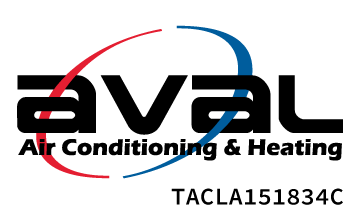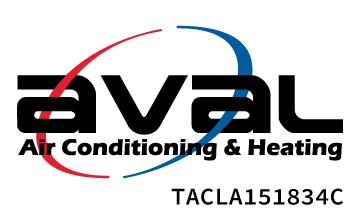Your furnace plays a critical role in maintaining a comfortable and cozy home environment during the chilly winters in Irving, TX. However, there comes a time when your existing furnace may reach the end of its life or need frequent, costly repairs, prompting you to consider a furnace replacement. The process of selecting and installing a new furnace can be overwhelming, given the multitude of options available on the market.
Explore the most crucial factors to consider when choosing a replacement furnace for your home, and how our expert technicians can guide you through the process.
Fuel Type: Choosing the Best Source of Energy for Your New Furnace
When choosing a furnace, one of the first decisions to make is the fuel type. The most common options include natural gas, propane, oil, or electric furnaces. Your choice could depend on factors such as accessibility to fuel sources, energy costs, and regional climate. Our professionals can help you understand the advantages and disadvantages of different fuel options, ultimately guiding you towards the best choice for your specific situation.
- Natural Gas Furnaces: These units are a popular choice in areas with access to natural gas pipelines, offering efficient heating and relatively low operational costs.
- Propane Furnaces: If natural gas isn’t available in your region, propane may be a viable alternative. Propane furnaces require a propane storage tank and regular fuel refills, but still provide efficient heating options.
- Oil Furnaces: While less common than gas and propane options, oil furnaces can be a good choice in areas with limited access to natural gas or propane. However, oil furnaces typically have higher fuel costs and require more maintenance.
- Electric Furnaces: These furnaces use electricity as their primary fuel source, making them suitable for homes without access to natural gas or propane. While electric furnaces have lower upfront costs, they can be less energy-efficient and may result in higher long-term energy expenses.
Size and Capacity: Ensuring the Right Fit for Your Home
Selecting the appropriate furnace size and capacity plays a pivotal role in ensuring efficient heating and energy consumption. An undersized furnace may struggle to effectively heat your home, while an oversized unit can result in higher energy consumption and short-cycling. Our technicians will accurately assess your home’s heating needs and recommend a furnace with the appropriate capacity to help you maintain a comfortable living environment.
- Calculating Heating Needs: Our experts consider factors such as the square footage of your home, insulation levels, window types, and the regional climate to determine the appropriate furnace capacity.
- Selecting the Right Furnace Size: Based on the heating needs assessment, we can recommend a furnace with an output capacity that matches your home’s requirements, ensuring optimal heating performance and energy efficiency.
Energy Efficiency: Evaluating Cost-Effective Options for Long-Term Savings
When replacing your furnace, it is a prime opportunity to invest in a more energy-efficient unit. Modern furnaces have improved energy efficiency ratings, which can significantly reduce your monthly energy bills. Our experts can help you evaluate cost-effective options that balance upfront costs with long-term savings to provide a worthwhile investment.
- AFUE Ratings: The Annual Fuel Utilization Efficiency (AFUE) rating signifies the efficiency of a furnace in converting fuel to heat. Higher AFUE ratings indicate better fuel efficiency, resulting in lower energy bills. We’ll discuss various furnaces with different AFUE ratings to help you make an informed decision.
- ENERGY STAR Certification: Furnaces with ENERGY STAR certification meet strict energy efficiency requirements set by the Environmental Protection Agency. These furnaces often provide better performance and lower energy consumption compared to non-certified models.
Compatibility with Your Existing HVAC System: Maximizing Performance and Efficiency
When selecting a replacement furnace, it is crucial to ensure that it is compatible with your current HVAC equipment, such as ductwork, air handlers, and thermostats. Compatibility is crucial to maximize performance and energy efficiency. Our team will evaluate your current HVAC system and suggest furnace options that align with your existing components for an optimal heating experience.
- Ductwork Evaluation: Our professionals will inspect your existing ductwork to determine if it can accommodate the airflow requirements of your new furnace, ensuring proper performance and maximum efficiency.
- Thermostat Compatibility: Your new furnace should ideally be compatible with your existing thermostat or smart thermostat system. Our technicians will help you determine the compatibility of thermostats and recommend suitable options if needed.
Conclusion:
Choosing the right furnace replacement for your Irving, TX home is a complex decision, but with the guidance of our expert technicians, you can make an informed choice that best suits your needs. By taking into account fuel type, size and capacity, energy efficiency, and compatibility with your existing HVAC system, you’ll be well-equipped to select the perfect furnace for your home.
Don’t leave your comfort to chance – contact us today for expert advice and reliable furnace furnace replacement in Irving, TX. Let our professionals at Aval Air Conditioning & Heating help you ensure seamless, efficient, and reliable heating for years to come!





